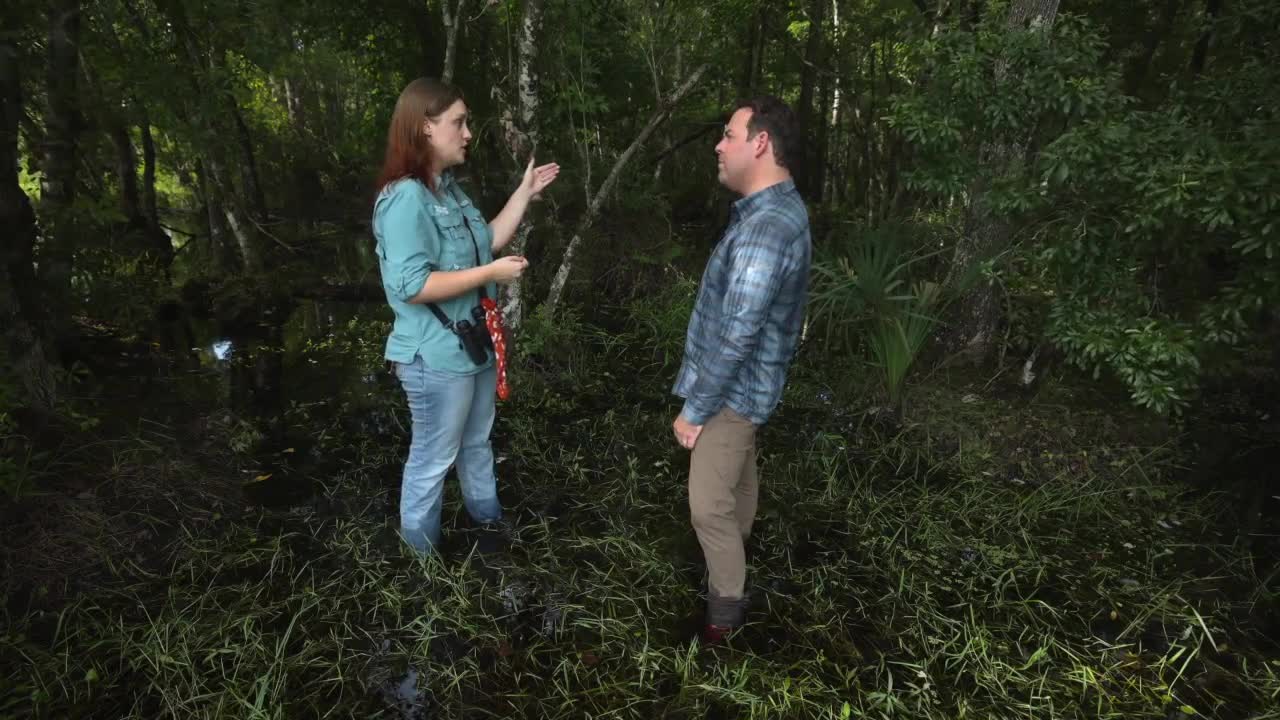HIGHLANDS COUNTY, Fla. — With more than a thousand people moving to Florida every year, the pressure to develop while protecting wild places is in a constant battle.
Cattle ranches are some of the last lines of defense to protect Florida's critically endangered species, like the panther. The ranch is just one mile east of Fisheating Creek. Trail cameras have captured two GPS-collared panthers and an uncollared individual roaming the property.
Watch report from Michael Paluska
Estimates show only 120 to 230 panthers are remaining in the wild.
The location for the ranch makes it a critical piece of land for the Florida Wildlife Corridor.
"We are immediately connected to 150,000 acres of conservation land of all different types," Chelsea Wisner, Director of Land Protection for the nonprofit Conservation Florida, told ABC Action News reporter Michael Paluska. "We know that panthers use this property. Now that this is conserved, folks on the adjacent publicly accessible lands are maybe more likely to see a panther, because this corridor exists."
According to a media release about the ranch released by Conservation Florida, "AP Ranch also lies within the Avon Park Air Force Range Sentinel Landscape, a nationally recognized corridor where military readiness, conservation, and agriculture align. The Sentinel Landscape Partnership — led by the U.S. Department of Defense (DoD), Department of Agriculture (USDA), and Department of the Interior — supports projects like this one that protect natural resources and working lands around critical military installations."
"We're proud to partner with Conservation Florida to see AP Ranch protected," said Lt. Col. (Ret.) Buck MacLaughlin. "This kind of land protection is good for everyone. It keeps rural Florida intact, gives wildlife the space they need, and helps make sure our military can continue to train effectively."
"It takes a lot of partnership to make these deals happen. It took two federal agencies, a nonprofit, and some awesome landowners to get this deal done," Wisner said.
Paluska toured the ranch in Highlands County with Wisner and the landowner of AP Ranch, Gerry Arsenault.

"Did you buy it knowing you wanted it to become a conservation easement at some point?" Paluska asked.
"We had that in the back of our mind at the time when we bought it," Arsenault said.
"There are 40,000 acres that aren't protected next to us," Paluska said, referencing Blue Head Ranch.
"I know and I hope that that owner would someday consider doing that," Arsenault said.
"Because there's a lot of pressure from development," Paluska said.
"It's pretty easy for a developer to come in and buy a large chunk and plan it out and plan a master community. And that's the scary part," Arsenault said.
"Does this send a message to other landowners that they can do this too?" Paluska asked.
"It's not that burdensome. It is a way to monetize their land holdings," Arsenault said. "If you could get 30, 40, 50 percent of your value today in today's dollars and still have the right to farm, raise cattle, or do whatever you are going to do, why wouldn't you do that? Someday, it might not be cattle, it might be blueberries or strawberries, we don't know."
"But it won't be a big box store?" Paluska said.
"It's not going to be developed ever," Arsenault responded.
Protecting Florida's wild spaces is a critical part of saving the Florida panther.
According to the FWC, "the remains of two sibling, 3.5-month-old female Florida panther kittens (UCFP489 and UCFP490) were collected on August 10, 2025, on Davis Blvd in Collier County (UCFP489 UTM 429213 E, 2891391 N; UCFP490 UTM 429296 E, 2891476 N). The suspected cause of death was a vehicle collision."
Vehicle strikes are the number one killer of the panther.

Parents weigh in on Florida’s new cellphone ban for K-8 students
Florida's K-8 cellphone ban in schools draws mixed reactions from parents concerned about safety, distractions, and staying connected during the school day.





